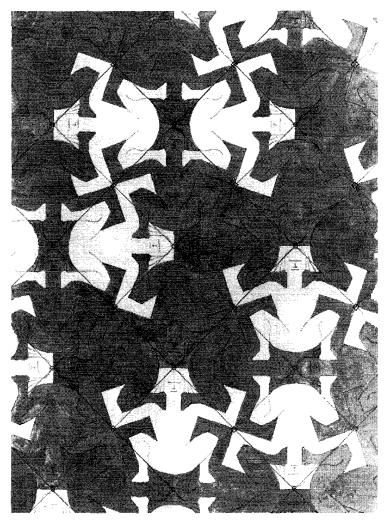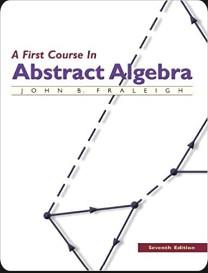The Study of Regular Division of the Plane with Imaginary Human Figures in Fig. 12.9. This exercise
Question:
The Study of Regular Division of the Plane with Imaginary Human Figures in Fig. 12.9.
This exercise is concerned with art works of M. C. Escher. Neglect the shading in the figures and assume the markings in each human figure, reptile, or horseman are the same, even though they may be invisible due to shading. Answer the same questions (a), (b), and (c) that were asked for Exercises 31 through 36, and also answer this part (d).
Data from exercise 31questions
a. Does the symmetry group contain any rotations? If so, through what possible angles θ where 0 < θ ≤ 180°?
b. Does the symmetry group contain any reflections?
c. Does the symmetry group contain any nontrivial glide reflections?
d. Assuming horizontal and vertical coordinate axes with equal scales as usual, give vectors in the two nonparallel directions of vectors that generate the translation subgroup. Do not concern yourself with the length of these vectors.
12.9 figure

Step by Step Answer:






